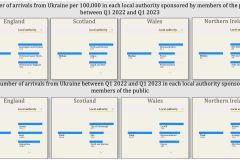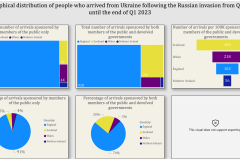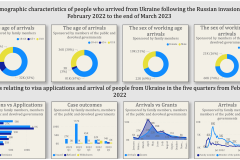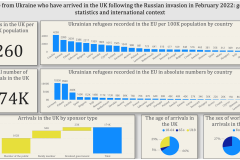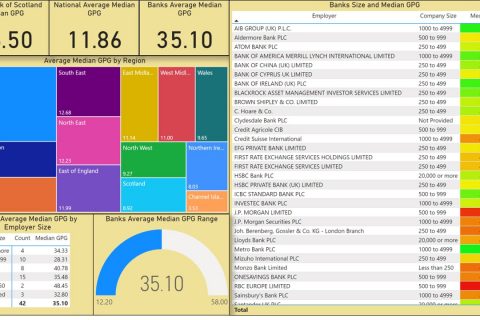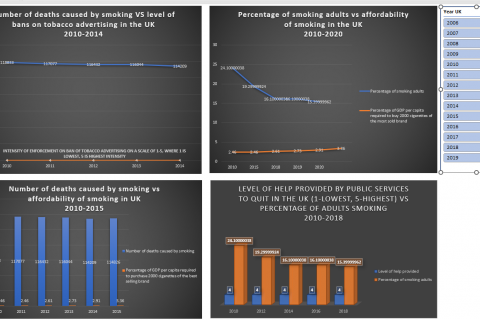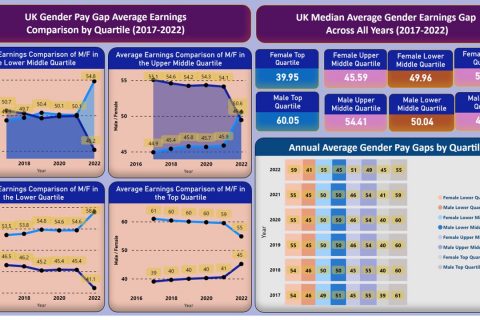
Ukraine Refugees investigation
The Women in Data and Digital Innovation were given a brief to plan, develop and evaluate a showcase project. They were given a free reign over subject matter, and some of the projects have been nothing short of outstanding.
This is an excerpt from this student’s planning stage:
I am planning to investigate how well the Ukraine visa schemes were implemented. I aim to check how fast visas were issued to Ukrainian nationals sponsored by UK family members, by members of the general public and by the devolved governments. I will compare the share of each scheme against the overall number of visas issued to see which scheme was more successful. I will check the number of visas issued against the number of people who arrived. I intend to examine the share of children, elderly, women compared to the overall number. I will check if there were certain geographical areas where Ukrainian refugees tended to settle or if they were dispersed evenly throughout the UK.
Additionally, I will check how the numbers in the UK compare with the numbers of Ukrainian refugees in other countries such as Germany and Ireland. Ireland would be a particularly interesting example to compare because Ukrainians required visas to enter Ireland before the war on Ukraine just like they do to enter the UK. In response to the invasion the visas for Ukrainians to enter Ireland were dropped, however, the UK kept visa regime for Ukrainians. Ireland is the only other European country to speak English which would make it the country of choice for many refugees, like the UK. Lastly, I will use the UK asylum statistics to examine if there have been precedents of the comparable numbers of people seeking sanctuary in the UK in recent history.
I will also examine the role of the Scottish government in responding to this crisis. For the first time in history the Scottish government was able to assert its own immigration and asylum policy through the implementation of the Super Sponsor Scheme. The scheme allowed Ukrainian refugees to be sponsored directly by the Scottish government rather than individual members of public. This meant that people were able to apply via a simpler procedure and be housed in temporary accommodation rather than seek members of the general public willing to accommodate them. The Super Sponsor Scheme was later closed because there was no more accommodation available. In relation to the above, I will examine how many more people the scheme allowed to sponsor and whether it made a significant difference against the backdrop of the UK overall number of arrivals.
The reason I chose this topic was because Ukraine schemes have been unprecedented in scale in the UK recent history and were introduced by the UK government under public and international pressure in a constrained timeframe. It has been just over a year since the schemes were implemented and it would be a good time to evaluate them. The war on Ukraine is ongoing and there are recommendations to be made on adjustments to the existing schemes. Additionally, is important to check how well they performed as well as learning from what did not work to inform future policy decisions. The successes of the Ukraine schemes could be replicated to respond to other crises in the future and present.







